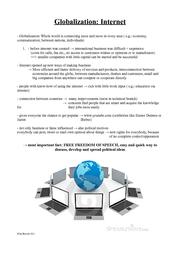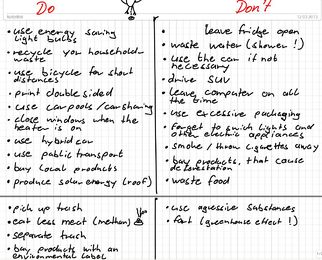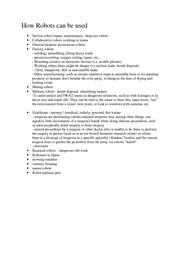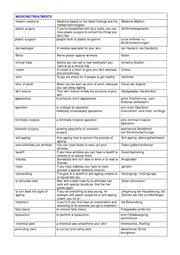colloquium2014: Unterschied zwischen den Versionen
K |
K (→Society and Class in the UK) |
||
| Zeile 313: | Zeile 313: | ||
:* targets of Philanthropists in the 1890s (idea to reduce alarming poverty) | :* targets of Philanthropists in the 1890s (idea to reduce alarming poverty) | ||
|} | |} | ||
| + | |||
| + | |||
| + | ===Class today - The class system redefined=== | ||
| + | * [http://www.bbc.co.uk/science/0/21970879 BBC Science: The Great British Class Survey – Results] Look at the embedded video!!! | ||
Version vom 15. Mai 2014, 07:32 Uhr
Inhaltsverzeichnis |
Topics for 11/2
Muslims in Britain
Texts
- Problematic issues between British Muslims and the "Christian" majority
- A problem of perception: Muslims are well-integrated in Britain – but no one seems to believe it
- Reflections of a Former Islamist Extremist
- Read from beginnin to "And it's a very powerful grip on one's mind. And in my case it took years to shed that influence." (third box)
- Answers to book, p. 86/87 q. 5 + 6
- Why does a young muslim turn into an extremist?
- crucial event: death of thousands of European muslims in war in Bosnia in 90s! West just watches and doesn't help the muslims there. (Parallels to wars in Iraq .... muslims are being killed and no-one cares)
- Islam is cleverly presented as way of looking at history: like in Marxism it is always a struggle, them against us, bad against good, everybody against the muslims (idea of Western/Jewish conspiracy against Islam/muslims)
- at school/in university young muslims become part of an active, organized, outspoken movement ⇒ proud to be an active muslim, feeling of power, feeling of belonging to group and of changing the world.
Cartoon ⇐Klick!
- 4 frames, three show acts of violence/hatred committed in the name of Christianity/Western Civilization
- evangelical pastor [=church] burning Korans, evangelical/conservative politician [politics] against building mosque in USA, secret service agent [=government] torturing terrorist suspect)
- irony: they all want revenge/act as unchristian/intolerantly as those they accuse of doing this to them
- irony: preacher is completely stupid: of course "them folks don't act like Christians" - they simply aren't christians!
- preacher also doesn't seem to know his Bilble: "Jesus hates Mohammed" is absolutely like anthing Jesus preaches in the Bible: Jesus preaches love, peace and forgiveness - not hatred!
- picture four shows the result: children in USA have learned, that you needn't act as you wish others to act towards you (in civilized way, mercyfully, helpfully, tolerantly ...) but can do anything you want as long as nobody stops you.
- General criticism: christian/western preachers and politicians and governments do the same things they accuse terrorists and radical islamist of ⇒ they are no better than them.
Globalization
Definition and Key Facts
Cf. Book, p. 178
History / 3 Phases of Globalization
Globalzation 1.0 (first phase/era) - 1492 (Columbus) until around 1800
- world got connected, shrank from size L to M
- trade between Old World and New World
- countries' power defined by use of horse power/wind power/steam power/ (horses, ships, engines)
- aim: to fit into global competition
- motivation often religion / imperialism
Globalization 2.0 (second era) - 1800 to 2000
- interrupted by the Great Depression, World War I and II
- world got more connected, shrank from size M to S
- industrial revolution and multinational companies (e.g. East India Company) as most dynamic forces
- global integration ⇐ breakthroughs in hardware development
- 1. falling transportation costs (steam engine, railroad, cars, airplanes)
- 2. falling telecommunication costs (telegraph, telephone, PC, satellites ...)
- development of really global economy ⇒ massive movement of goods and information
Globalization 3.0 (third era) - from 2000 to …
- world got even more connected, shrank from S to XXS and countries got even closer
- newfound power for individuals to communicate, collaborate, compete globally
- key developments:
- - fiber-optic cable + Internet + work flow software + mobile computing
- - final end of simple East/West division
- ⇒ very small, flattened world/playing field (many forces on same level, even individuals are very powerful)
- - China has become more powerful
- - now much more diverse, non-white, non-European influences ⇒ West no longer dominant in globalization
Source: Friedman. The three eras of globalization (Book, p. 176f)
Pros and Cons
- Globalisation: Pro - Con 1
- Globalisation: Pro - Con 2
- Book, p. 178
Globalisation and the Internet
Globalization and culture
- http://en.wikipedia.org/wiki/Globalization#Culture
- http://independent.org/newsroom/article.asp?id=2258
- http://www.globalization101.org/uploads/File/Culture/cultall2011.pdf
Ecology and Protecting the Environment
How green are you?
- Look at How green are you?
- Look through the test again an create a simple list of dos and don'ts!
- Prepare a short talk about at least 4 environmental dos and don'ts and tell people about your favourite!
Environmental DOs and DON'Ts
Zum Vergrößern mehrfach klicken und dann speichern ...!
Saving the rainforests, Global warming and use of energy
- See our blog http://howgreenisourfuture.wordpress.com, especially the chapters on "global warminfg" and "energy".
- See this blog http://no2deforestation.wordpress.com, especially the two chapters on "effects/risks" and "solutions".
Topics for 12/1
The Hobbit - a Fantasy Novel classic by J.R.R. Tolkien
- Cf. your scrapbook + worksheets + notes that you took while we were reading it in class. Especially look at the two concepts of the hero, at Bilbo and Thorin ...!
- Reasons for reading Fantasy:
Using Robots
- Using robots today ...
- New wave of adept robots is changing global industry
- How robots can be used:
Effects of using robots ...
Summary of the two articles:
Advantages of using robots:
Military robots:
- advantage in war
- unlimited supply of robots
- fewer in human lives lost
- more effective use of weapons than human soldiers
- rms race in robotics has begun → US a must keep advantage in this field
- Machines: no negative or strong emotions
- better at quick, rational decision-making
- more rational/calm and ethical decisions (no anger, revenge) is
Household robots
- save time/work/do boring and dirty jobs ⇒ useful helpers
- can be used to control home/house remotely
Problems/dangers of using robots:
Military robots
- Sufficient ability to identify proper targets/combatants?
- right to decide about acceptable human collateral damage?
- inability to show mercy/give pardon
- who is responsible if robot kills wrongly
- technical ability to kill and destroy is more easily developed than more role/ethical control-mechanisms
- dangerous, 100% obedient tool in the hands of dictators etc.
Household robots if hacked, they could be illegally used to
- control our homes
- spy on us
- attack us
.
Text: Programmed for Love (Man loves Robot?)
- The original text on the problematic relations between people and robots can be read here!
Answers to questions 1 and 3 on worksheet:
1. Headline makes reader wonder:
- programmed (technology) ⇐⇒ love (emotion)?
- programmed: no choice, no free will ...
- who is programmed for love? (Assumption: a robot/computer/machine?)
- Reader curious to answer the question/find connection between technology - emotion
After reading that human beings, and not machines, here are programmed in such a way that they fall in love with robots ⇒ surprise ⇒ interest ... How can that be - "to have" to love a robot due to being programmed to do so?
3. Change in author's attitude to robots:
first/before
- enthusiastic about new technologies (MIT)
- believed in benefits of creating alternative identities in virtual life
- studied human interactions with computers
then / after (encounter in which she realized she wanted the robot's attention, reacted to simple signals of communication) against man - robot relations on an emotional basis as:
- Robots can malfunction
- afraid that machines play role that only humans should play
- it damages our sense of humanity
- robots don't love you back, even if the promise
- people give up establishing and having relationships with real people
- Outlook: Will robots change us?
Improving yourself: The human body as a piece of art:
Plastic surgery: statistics
Plastic Surgery for Men:
- want to have more success in jobs
- want to attract younger women
- want to have an image of vitality
- makes them feel better
- to look more attractive
- to get attention from other people
- to look young, fit, with good reactions and professional
- to bring out their character
- to prevent prejudice
Cf. Worksheet/mediation on plastic surgery for men
Plastic Surgery for Women:
- to look like the women in the media
- everybody does it
- prices go down
- feels good to get told that they look good
- to improve their self-confidence
- to remind themselves of the good times
- people don´t like themselves because they are brainwashed by the media
- to be more attractive to men
- to get better job chances
- youth shows fertility
- to wear the newest dresses ( fashion ) ????????
Plastic surgery for teenagers: Video
- Plastic surgery performed on teens in the USA: Motives, views and attitudes, effects and problems covered by this video clip ...!
How much do looks count today? (Cf. worksheet/handout)
- Looks count ... Text on worksheet, too!
- Looks count more than skills at work (and that goes for men too). Text on worksheet!
The cult of youth, beaty and the body:
Topical Vocabulary
Vocab sheet on plastic surgery / youth cult:
Society and Class in the UK
Definitions of "Class" in Victorian Society
Victorian Class System
| Victorian Society = 3 classes: upper, middle, and lower/working |
|---|
|
Upper class = nobility, or peerage (dukes, earls, viscounts)
|
Class today - The class system redefined
- BBC Science: The Great British Class Survey – Results Look at the embedded video!!!





